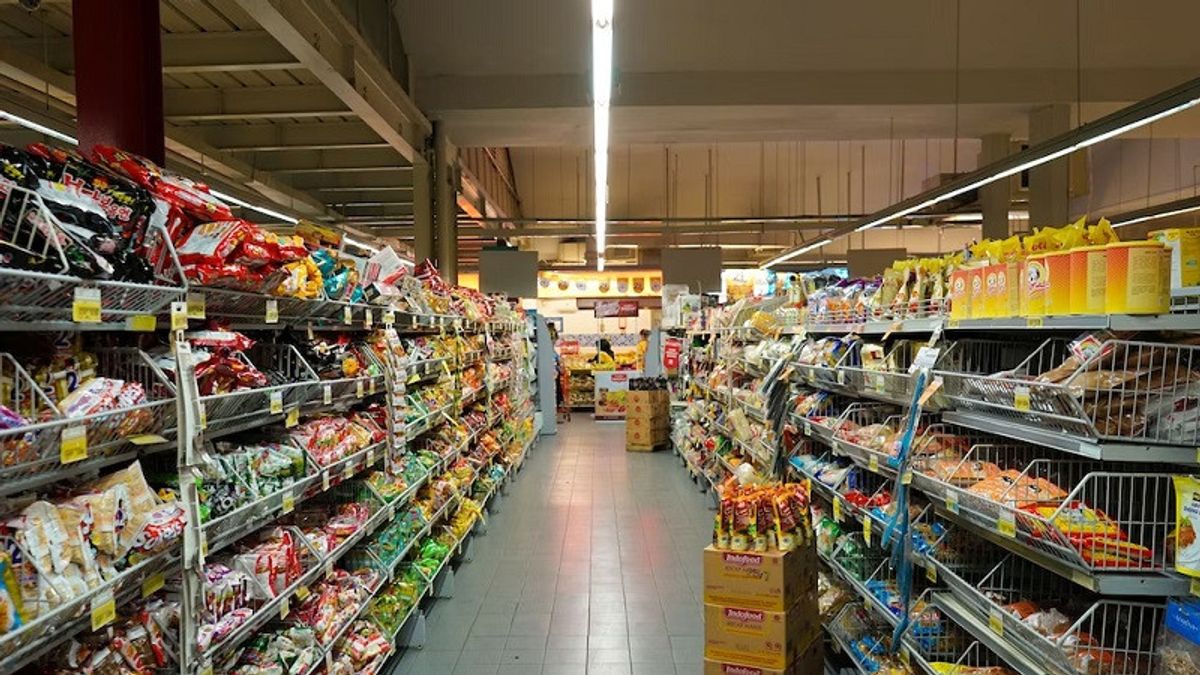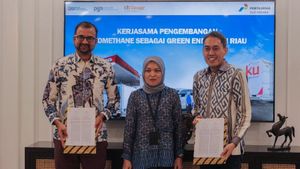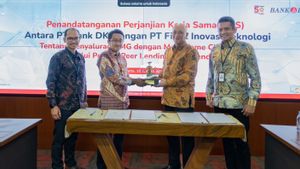JAKARTA - Indonesia's retail trade conditions have just recovered from the impact of the COVID-19 pandemic. However, it was exacerbated by the old licensing process to illegal imports. Therefore retail entrepreneurs asked the government to intervene to save the retail sector.
Chairman of the Indonesian Shopping Center Retailers and Tenants Association (Hippindo) Budihardjo Iduansjah said that this condition could not be allowed to drag on. The reason is, retail trade is the backbone of the Indonesian economy.
"In the field, there are still many facts that can be used as an example of how the retail business still does not have the maximum support from the government," he said at a press conference in Jakarta, Tuesday, January 16.
For example, said Budihardjo, the establishment of a supermarket or mall requires permits of around 50 permits. So that the expansion process becomes very slow compared to other neighboring countries.
"A well-known mall that has expanded to ASEAN countries in 8 years has proven to only be able to establish 5 malls in Indonesia, far behind compared to Vietnam which managed to establish 30 malls, and in Cambodia as many as 10 malls," he said.
"If this continues and there is no solution from the government, then the retail association and its ecosystem that oversees more than 10 million employees will continue to fall," he continued.
In addition, continued Budihardjo, the implementation of import policies, one of which is in the regulation on tightening imports for branded goods, has an impact on certain sectors, and has resulted in many opportunities being lost.
The opportunity for expansion to various regions in Indonesia has evaporated into the air because currently many shops selling branded goods are starting to empty and run out of stock. An electronics store in Indonesia, for example, now has only 60 percent of the total SKU in Singapore and Malaysia. The price of branded goods in Indonesia is found to be 40 percent more expensive than in Singapore and Malaysia," he explained.
As a result, continued Budihardjo, the option to shop abroad was then chosen by many domestic consumers because it was cheaper and the choice was more complete. This means that Indonesia loses the opportunity to become a shopping destination for foreign tourists, because the prices are expensive.
SEE ALSO:
"The practice of entrusting services or jattip that does not pay taxes and illegal imports is becoming more and more mushrooming," he explained.
In fact, he said, the MSME sector was also affected by the tightening of imports of raw materials so that domestic product production was also affected. So far, it is known that retailers have also played a large role in helping MSMEs and local producers in the supply chain ecosystem network.
"The government has made various regulations that are good but not appropriate in overcoming this illegal import problem. A serious impact has been experienced by legal importers. In several open hearings, we have also conveyed conditions in the field but regulations are still being issued," said Budihardjo.
The English, Chinese, Japanese, Arabic, and French versions are automatically generated by the AI. So there may still be inaccuracies in translating, please always see Indonesian as our main language. (system supported by DigitalSiber.id)
















